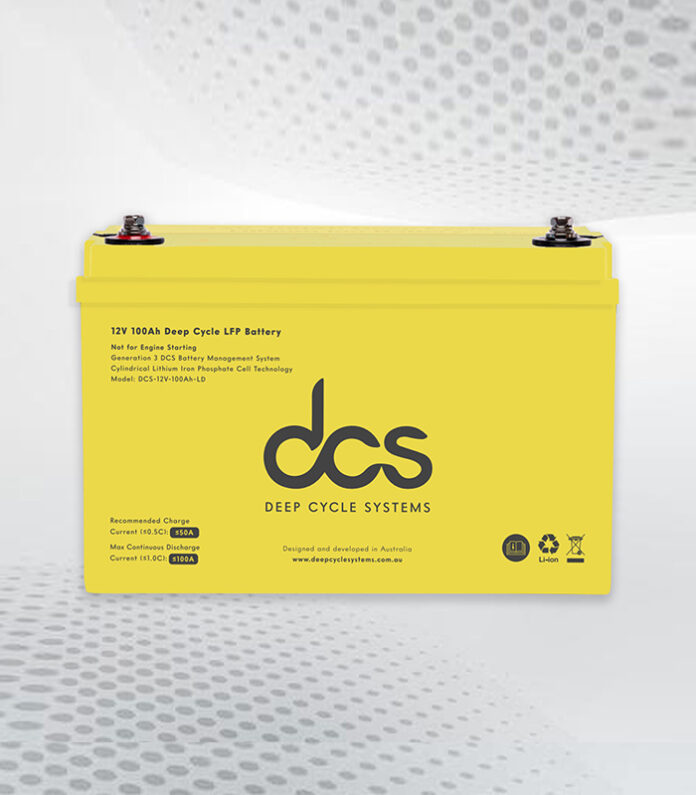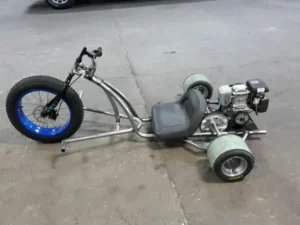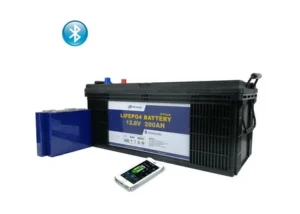Li ion 12V 100Ah batteries are increasingly becoming a staple in numerous sectors due to their efficiency, reliability, and compact nature. These batteries are at the forefront of powering many applications, from portable electronics to electric vehicles, offering a potent mix of power and versatility. Read on to know everything about these reliable batteries.
Introduction to Li-Ion Batteries
Lithium-ion (Li-ion) batteries have revolutionized energy storage, providing a high energy-to-weight ratio ideal for modern applications. Originating from advancements in electrochemical technology, these batteries are known for their efficiency and minimal self-discharge rates. Li-ion batteries utilize lithium compounds for the positive electrode and carbon for the negative electrode, enabling them to store and deliver energy more effectively than traditional batteries.
The absence of memory effect allows for partial and intermittent charging without degrading overall battery life. Their adaptability to various technological demands has cemented their place as a cornerstone in developing sustainable and portable energy solutions. The continuous evolution of Li-ion technology ensures that these batteries remain at the cutting edge of energy storage innovations.
Key Features of Li-Ion 12V 100Ah Batteries
Li-ion 12V 100Ah batteries stand out in the energy storage market due to their remarkable efficiency, robust performance, and versatile applications. These advantages make them a preferred choice across various industries, from automotive to renewable energy systems. Below, we delve into the key benefits that set these batteries apart.
Energy Efficiency
One of the most significant advantages of Li-ion 12V 100Ah batteries is their exceptional energy efficiency. These batteries are designed to deliver substantial power output while minimizing energy loss during both charging and discharging processes. With charge and discharge efficiencies often exceeding 95%, Li-ion batteries ensure that nearly all the energy stored is available. This high efficiency maximizes the battery’s performance and reduces overall energy consumption, making it an economical choice for long-term energy storage solutions.
Lightweight Design
The lightweight nature of Li-ion 12V 100Ah batteries is another standout feature. Weighing significantly less than traditional lead-acid batteries, typically around 10-15kg, they offer a more portable and easier-to-handle option without compromising energy capacity. This reduced weight is particularly beneficial in applications where mobility and ease of installation are crucial, such as electric vehicles, marine vessels, and portable power systems. The lightweight design also improves overall system efficiency, especially in mobile and transportation sectors where every kilogram matters.
Extended Lifecycle
Li-ion 12V 100Ah batteries boast an extended lifecycle, capable of handling numerous recharge cycles with minimal capacity degradation. Many models achieve up to 3000-5000 cycles at 80% depth of discharge (DoD), significantly outlasting conventional batteries. This longevity translates to lower maintenance costs and fewer replacements over the battery’s lifespan, providing a cost-effective and sustainable energy storage solution. The extended lifecycle also enhances the reliability of systems that depend on a consistent power supply, ensuring long-term performance and dependability.
Low Self-Discharge Rate
A key feature of Li-ion 12V 100Ah batteries is their low self-discharge rate. These batteries retain their charge when unused, with self-discharge rates typically below 5% per month. This characteristic makes them ideal for applications that require long-term storage without frequent maintenance, such as backup power systems, emergency lighting, and off-grid installations. The ability to hold a charge for extended periods ensures that the battery is ready for use whenever needed, enhancing the overall reliability of the energy storage system.
Consistent Power Output
Li-ion 12V 100Ah batteries provide a consistent and stable power output, making them highly dependable for various applications. Unlike some battery types that experience voltage drops under load, Li-ion batteries maintain a steady voltage throughout the discharge cycle. This consistency ensures optimal performance of connected devices and systems in high-demand environments like electric vehicles or critical applications such as medical equipment and telecommunications infrastructure.
Absence of Memory Effect
Another notable advantage is the absence of the memory effect in Li-ion 12V 100Ah batteries. Unlike nickel-based batteries, Li-ion batteries do not suffer from capacity loss due to incomplete charging cycles. This allows for flexible charging patterns without negatively impacting the battery’s longevity or performance. Users can charge the battery anytime without worrying about reducing its overall capacity, providing greater convenience and flexibility in energy management.
High Energy Density and Compact Design
The high energy density of Li-ion 12V 100Ah batteries means they can store more energy in a smaller and more compact form factor. This makes them suitable for limited-space applications like portable electronics, electric vehicles, and compact renewable energy systems. The combination of high energy density and compact design allows for more efficient use of available space, enabling the integration of powerful energy storage solutions in various settings without requiring a significant physical footprint.
Versatile Applications
The versatile nature of Li-ion 12V 100Ah batteries makes them suitable for a wide range of sectors. In the automotive industry, the power electric vehicles, providing reliable and long-lasting energy for extended driving ranges. Renewable energy systems, including solar and wind installations, utilize these batteries for efficient energy storage and management. Additionally, they are ideal for marine applications, telecommunications backup power, recreational vehicles, and off-grid living solutions. Their high energy capacity, efficiency, and robust performance ensure they effectively meet diverse energy needs across multiple industries.
Applications in Various Industries
Li-ion 12V 100Ah batteries are highly versatile, finding use in several industries due to their dependable performance and energy efficiency. In the automotive sector, these batteries are utilized in electric and hybrid vehicles, providing reliable power storage. The renewable energy sector employs them in solar power systems to store energy when sunlight is unavailable.
Additionally, telecommunications benefit from their use in backup power supplies, ensuring continuous operation during outages. Critical infrastructure, such as data centers and medical facilities, rely on these batteries for stable and consistent power output. Their compact and lightweight design suits them for various portable electronic devices and marine applications.
Advantages of Using Lithium Ion Battery 12v 100ah
The advantages of using a lithium ion battery 12v 100ah are multifaceted, providing distinct benefits across various applications. These batteries exhibit higher energy efficiency, allowing for prolonged operational time per charge compared to traditional lead-acid batteries. Their lightweight construction significantly reduces the overall mass of the devices they power, enhancing mobility and performance.
Additionally, they deliver a consistent power output, ensuring reliable performance in critical applications such as backup power supplies and electric vehicles. The extended lifecycle of Li-ion 12V 100Ah batteries means fewer replacements are needed, contributing to cost savings and reducing environmental impact. Their compact size and high energy density make them ideal for various uses, from renewable energy storage to portable electronics. With minimal maintenance requirements and the ability to withstand numerous recharge cycles without substantial capacity loss, these batteries are a dependable choice for modern energy needs.
Safety and Maintenance Considerations
Ensuring the safety and longevity of Li-ion 12V 100Ah batteries involves adhering to specific safety protocols and maintenance practices. Proper care extends the battery’s lifespan and prevents potential hazards associated with improper handling and usage.
Proper Charging Practices
These batteries should always be charged with appropriate equipment designed for Li-ion technology to prevent overcharging, which can lead to overheating and potential hazards such as fires or explosions. Chargers with built-in safeguards, such as automatic shut-off features and voltage regulation, ensure the battery receives the correct charge without exceeding safe limits. Following the manufacturer’s charging rates and duration guidelines is important to maintain optimal battery health.
Protection Against Physical Damage
Physical damage, such as punctures or impacts, must be avoided as it can compromise battery integrity and lead to dangerous situations. Batteries should be handled carefully, avoiding drops or Exposure to sharp objects that could breach the casing. In environments where batteries are subject to movement or vibrations, such as in vehicles or marine applications, securing the battery properly can prevent physical stress and potential damage.
Temperature Management
Storing and operating these batteries within recommended temperature ranges is crucial, as extreme temperatures can affect performance and safety. Exposure to high temperatures can accelerate degradation and increase the risk of thermal runaway. In contrast, extremely low temperatures can reduce the battery’s efficiency and capacity. Effective thermal management systems, such as ventilation, cooling fans, or insulated enclosures, help maintain stable operating conditions.
Regular Inspections and Maintenance
Regular inspections for signs of wear, swelling, or leakage are essential to identify potential issues early. Visual and tactile checks should be conducted periodically to detect any abnormalities. Additionally, monitoring the battery’s performance through voltage and temperature readings can provide insights into its health and detect early signs of malfunction. Addressing minor issues promptly can prevent them from escalating into major problems.
Proper Storage Practices
Batteries should be stored in a cool, dry place away from direct sunlight and heat sources when not in use. Maintaining the battery at a partial charge (typically around 40-60%) during long-term storage can help preserve its capacity and extend its lifespan. It is also advisable to store batteries in fire-resistant containers to mitigate the fire risk in case of accidental short-circuiting or other issues.
Safe Disposal and Recycling
Proper disposal and recycling procedures should be followed to minimize environmental impact and recover valuable materials. Li-ion batteries contain hazardous materials that can harm the environment if not handled correctly. Recycling programs ensure that components such as lithium, cobalt, and other metals are recovered and reused, reducing the need for raw material extraction and decreasing environmental pollution. Users should adhere to local regulations and guidelines for battery disposal, utilizing certified recycling centers to ensure safe and responsible handling.
Future Trends in 12v 100ah Lithium Ion Battery Technology
The trajectory of 12v 100ah lithium ion battery technology is marked by exciting advancements to boost energy density, accelerate charging times, and enhance overall sustainability. Researchers are exploring novel materials and chemical compositions to create higher-capacity batteries and longer operational lifespans. Solid-state batteries, which replace the liquid electrolyte with a solid material, are a particularly promising development, offering increased safety and performance.
Efforts are also being directed toward making batteries more environmentally friendly by reducing the reliance on scarce or hazardous materials. Innovations in manufacturing processes and recycling technologies are expected to lower production costs and improve the lifecycle management of these batteries, contributing to a more sustainable energy landscape.
Environmental Impact and Recycling
The environmental impact of Li-ion 12V 100Ah batteries is a subject of considerable attention due to the materials and processes involved in their production and disposal. Manufacturing these batteries requires extracting raw materials like lithium, cobalt, and nickel, which can have adverse ecological effects if not managed responsibly. However, recycling technology advances are helping mitigate these impacts by recovering valuable elements from used batteries.
Recycling processes are continually refined to improve efficiency and reduce environmental footprint. Proper disposal and recycling of Li-ion batteries are critical to prevent hazardous materials from entering landfills and to promote the reuse of finite resources. Collaborative efforts between industry and regulatory bodies are essential to develop comprehensive recycling schemes that are both economically viable and environmentally sustainable. Enhancing recycling practices can extend the life cycle of Li-ion batteries, thereby reducing the need for new raw materials and minimizing ecological harm.
Conclusion
Li-ion 12V 100Ah batteries exemplify a versatile and efficient energy storage solution well-suited to meet the diverse needs of modern technology. These batteries boast superior energy efficiency, delivering extended operational times and dependable performance across numerous applications. Their lightweight design significantly enhances the mobility and efficiency of the devices they power. The long lifecycle of these batteries translates to fewer replacements and lower maintenance costs, promoting economic and environmental benefits. Their consistent power output is critical for backup power supplies and electric vehicles, where reliability is paramount.
FAQs
1. What distinguishes Li-ion 12V 100Ah batteries from other battery types?
Li-ion 12V 100Ah batteries are noted for their superior energy density and longer lifespan, making them more efficient and reliable than traditional batteries.
2. Are Li-ion 12V 100Ah batteries safe to operate?
These batteries are safe and maintained according to the recommended guidelines. Proper handling and adherence to safety protocols are crucial.
3. Is recycling possible for Li-ion 12V 100Ah batteries?
Recycling these batteries is possible and encouraged to minimize environmental impact. Advanced recycling processes help recover valuable materials, promoting sustainability.
4. What are the typical uses of Li-ion 12V 100Ah batteries?
These batteries are commonly utilized in electric vehicles, renewable energy systems, and backup power supplies across various sectors.
5. What advancements are anticipated in Li-ion 12V 100Ah battery technology?
Future improvements are expected to enhance energy density, reduce charging times, and develop solid-state batteries for better safety and performance.




